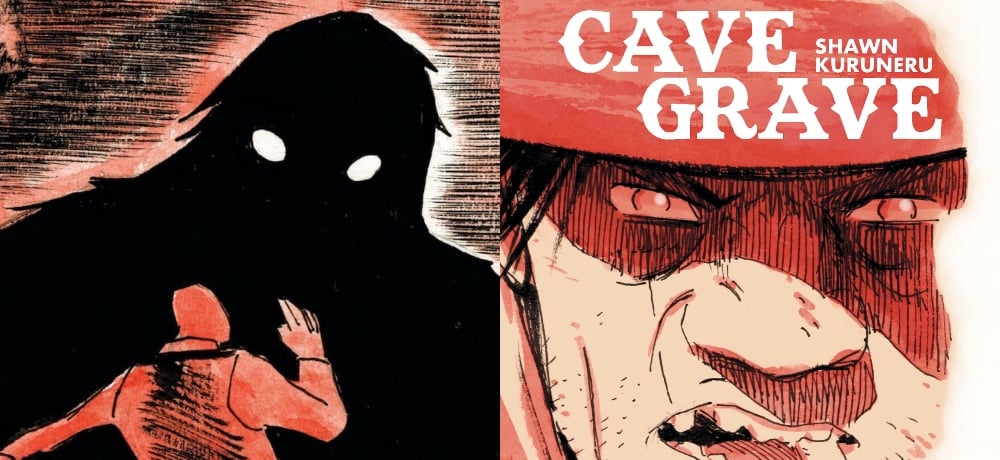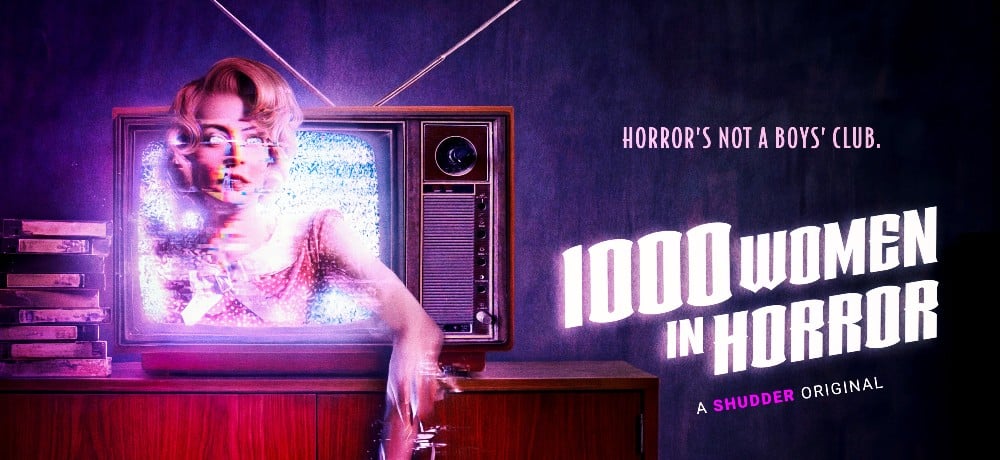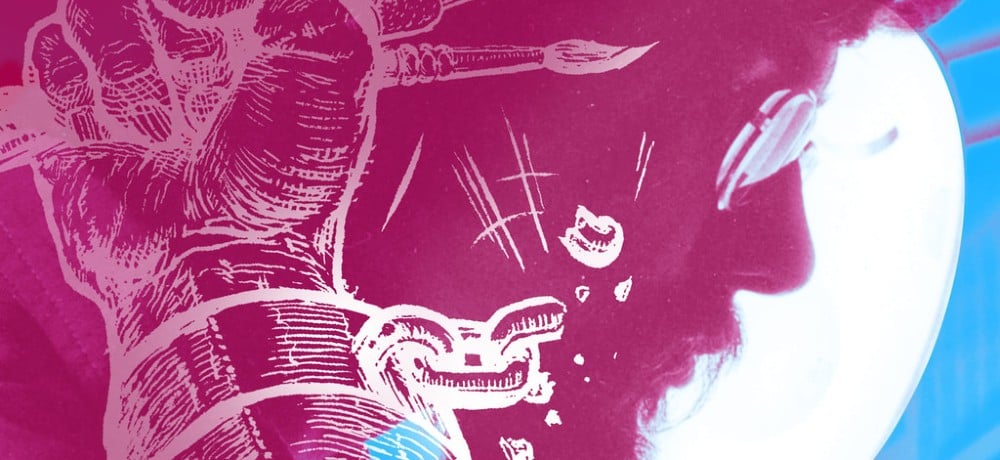






"Publisher. Underground Cartoonist. Activist. Historian. Quirky Collector. Troublemaker. Denis Kitchen has been taking on the establishment for decades. Now an all-new documentary, Oddly Compelling, highlights Kitchen’s long, strange trip — from his early days as a hippie cartoonist, to his thirty years as one of the most important independent comic book publishers, and his work as a fierce advocate for the First Amendment. Oddly Compelling is now on Kickstarter.
Filmmaker Soren Christiansen and Ted Intorcio have captured hours of in-depth, candid conversations with Denis Kitchen, as well as fellow cartoonists and colleagues including Alison Bechdel, Warren Bernard, Eddie Campbell, Paul Gravett, Karen Green, Justin Hall, Gary Hallgren,Tom Heintjes, MariNaomi, Peter Poplaski, Carol Tyler, and the Comic Book Legal Defense Fund’s Interim Director Jeff Trexler. The film also features rare archival footage of comic book legends Robert Crumb, Will Eisner, and Harvey Kurtzman, along with new animation of Kitchen’s iconic cartooning. The film charts Kitchen’s career — as an indie cartoonist, a provocateur and publisher, and founder of the Comic Book Legal Defense Fund."
Ahead of Oddly Compelling's Kickstarter launch, I caught up with Denis Kitchen to discuss the documentary, supporting freedom of speech, banned horror comics, and more:
You are the subject of Oddly Compelling, a documentary that chronicles your career as a cartoonist, a publisher, and the founder of the Comic Book Legal Defense Fund. How did this project come about?
Denis Kitchen: I was approached by the filmmakers; it was as simple as that. One of them, Ted Intorcio, was in the comics biz (cartoonist, publisher, animator) and had visited me, so he saw the many unusual things I collect or create outside the comics realm. I think it was that combination of my long and varied career in comics plus the eccentric sidebars that persuaded him and his film partner Soren Christiansen to think a documentary was a worthwhile endeavor. I’ve been a “talking head” in, I think, eight other documentaries but I certainly never expected to become the focus of one.
Obviously, there is increased concern of censorship due to the current state of politics in the United States, with censorship in schools, libraries, and elsewhere. What are your recommendations for how our readers can help support freedom of speech for comic book creators?
Denis Kitchen: The very first thing to do: join the Comic Book Legal Defense Fund (CBLDF), a non-profit organization I founded in the late 1980s that protects the First Amendment rights of comics retailers, artists, and others. It doesn’t cost much to join, but the cumulative support allows the CBLDF to have a war chest to hire seasoned specialty attorneys to defend members of our community who come under attack. On a larger scale, I recommend becoming involved in local and regional politics to help elect politicians who share anti-censorship values. Another thing is to support your local libraries. They are often in the front row trenches when some activists try to remove or ban books.
Many people don't realize how many horror comics were banned due to the Comics Code and haven't seen the light of day since the 1950s. That's starting to change with reprints and public domain availability online. Is there a specific line of lesser-known horror comics that you'd suggest to our readers?
Denis Kitchen: I loved those early horror comics as a young boy. They were simultaneously scary and exhilarating, which is what anyone wants out of horror literature. I sold my youthful collection of horror comics some years back—with some regret—but remember favorite covers by Basil Wolverton, Don Heck, Joe Maneely and many now-forgotten artists. The Atlas line is particularly memorable, because it was essentially the company that became Marvel, so the horror stories were drawn by Steve Ditko, Jack Kirby and others in Stan Lee’s bullpen.
Comic book creators have more self-publishing routes now than they did before the internet. Do you feel hopeful about the future of comic books as a free-speech storytelling medium?
Denis Kitchen: I do. Whether mainstream comics (Marvel, DC, Archie) will thrive in the traditional stapled format remains to be seen, but I have great faith that self-published and indie-published comics in varying formats will only grow. They are an ideal form of expression because the cost of manufacturing is quite low—or virtually nil if online—and comics can be produced by a single person, so anyone can express their opinions, their politics, their life stories, whatever, without anyone saying you can’t. I often recommend collaborations between writers whose drawing skills are minimal and artists who aren’t necessarily good writers in order to produce more effective results. But whether solo or collaborative or team-effort anthologies, I am sanguine about comics as a free speech medium.
Aside from comic books, you are an eclectic collector. Can you tell us about some of your favorite items from your collection and your valley of Frankenstein dolls?
Denis Kitchen: I do collect many things, from 30s-50s toy cars, comics figurines, Kewpies, Mona Lisa kitsch, original comic art, old candy bar wrappers, vintage photos of cartoonists, buttons, vinegar valentines, and so on, but in recent years my biggest collecting passion has been topical postcards from around 1900-1920s. I think I have over 100,000 carefully sorted into categories and countless sub-categories. The printing on the pre-WWI cards is amazing, because the best were done on chromolithography presses in Germany, utilizing a wide color range, embossing, gold and silver, etc. And many of the artists were outstanding. The topics were often politically incorrect (misogynistic, racist, jingoistic, and very cruel, but they are an honest, if offensive, reflection of the era. I find the cards fascinating from both an artistic and political/social perspective. If any of your readers find such cards in Grandma’s attic, get in touch with me. ;-)
The Valley of Frankenstein Dolls started as a lark: I carved a new path in the woods adjacent to our remote New England home, and started to define it with guide rails woven from branches. One day I had—don’t remember why—a couple of doll heads and stuck them on stakes, probably to help define the still rough path. Another few got added, friends donated old dolls, and the next thing I knew, it was out of hand: I began assiduously seeking dolls and the path became increasingly congested. I also create numerous “Frankenstein” dolls by combining parts, gluing on unintended appendages, putting “cigarettes” in innocent baby mouths, stuff dollhouses, and create doll prisons from bird cages and similar. The process continually evolves. Now there are well over a thousand dolls lining the path. Some think it’s a bit creepy, but I’m just having fun. A man has to have a hobby, right? Eventually maybe a producer of horror films will create a plot that involves some victim stumbling into this eerie invention.
---
For more information, follow Denis Kitchen on Instagram, follow Tinto Press on Facebook and Instagram and follow Oddly Compelling on YouTube.
To support the campaign, visit Kickstarter: https://www.kickstarter.com/projects/tinto-press/oddly-compelling-the-denis-kitchen-story?ref=3onbde